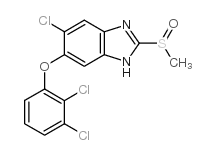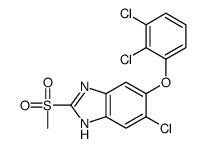| 结构式 | 名称/CAS号 | 全部文献 |
|---|---|---|
 |
三氯苯达唑亚砜
CAS:100648-13-3 |
|
 |
氯苯咪唑砜
CAS:106791-37-1 |
| 结构式 | 名称/CAS号 | 全部文献 |
|---|---|---|
 |
三氯苯达唑亚砜
CAS:100648-13-3 |
|
 |
氯苯咪唑砜
CAS:106791-37-1 |